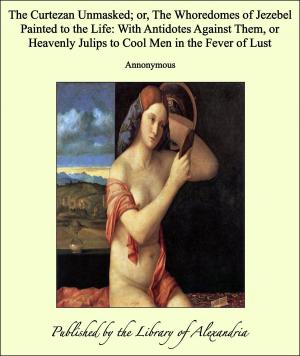Romantic Cities of Provence
Nonfiction, Religion & Spirituality, New Age, History, Fiction & Literature| Author: | Mona Caird | ISBN: | 9781465618375 |
| Publisher: | Library of Alexandria | Publication: | March 8, 2015 |
| Imprint: | Language: | English |
| Author: | Mona Caird |
| ISBN: | 9781465618375 |
| Publisher: | Library of Alexandria |
| Publication: | March 8, 2015 |
| Imprint: | |
| Language: | English |
During the night there was a great and unexplained tumult: rustling sounds in the little courtyard to which our rooms looked out; whisperings along the corridors; distant bangings; footsteps, voices—or was it the remaining rumours of a dream? Then a great sigh and a surging among the shrubs in the courtyard. The creepers sway against the windows, and something seems to sweep through the room. Presently a rush and a rattle among the jalousies, and a high scream as of some great angry creature flying with frantic wings over the courtyard and across the sky. The mistral! There was no mistaking our visitor. A great angry creature, indeed, and no one who has seen the Land of the Sun and Wind only under the sway of the more benign power can have any conception of the passion and storm of this mighty Brigand of the Mountain. We begin now to understand the meaning of the epithet, "windy Avignon." And if one considers its position on the plain of the Rhone and the Durance—the country stretching south and east to the mysterious stony desert of the Crau[1] and the great regions of the mouths of the Rhone—it is easy to see how the Black Wind, rushing down from his home in the ranges of Mont Ventoux and the Luberon, must sweep the streets of the city and fill every nook and corner with whirl and trouble. The Rhone that "bends round Avignon to salute Our Lady on her high rock," as Mistral proclaims, grows white with anger under the lash, noble river that she is! Round farmstead and garden, along her banks, and far away on the great spaces of this wonderful country, long, tall rows of cypresses keep guard over house and home; for only these steadfast trees of Wisdom and of Sorrow can stand against the fury of the mistral. For unnumbered ages, long, long before all human history or tradition, he has lorded it over the country, descending after the fashion of the ancient Ligurian inhabitants from the hill-tops, for raid and ravage in the valleys. Many have been his victims from first to last; among them the daughter to whom Madame de Sévigné addresses her famous letters. She suffers from his onslaught upon her Provençal château of Grignan, which was nearly destroyed by the monster; unless, indeed, the lady is romancing a little to keep her lively mother amused and quiet; for Madame de Sévigné writes: "Vous dépeignez cette horreur comme Virgile!"
During the night there was a great and unexplained tumult: rustling sounds in the little courtyard to which our rooms looked out; whisperings along the corridors; distant bangings; footsteps, voices—or was it the remaining rumours of a dream? Then a great sigh and a surging among the shrubs in the courtyard. The creepers sway against the windows, and something seems to sweep through the room. Presently a rush and a rattle among the jalousies, and a high scream as of some great angry creature flying with frantic wings over the courtyard and across the sky. The mistral! There was no mistaking our visitor. A great angry creature, indeed, and no one who has seen the Land of the Sun and Wind only under the sway of the more benign power can have any conception of the passion and storm of this mighty Brigand of the Mountain. We begin now to understand the meaning of the epithet, "windy Avignon." And if one considers its position on the plain of the Rhone and the Durance—the country stretching south and east to the mysterious stony desert of the Crau[1] and the great regions of the mouths of the Rhone—it is easy to see how the Black Wind, rushing down from his home in the ranges of Mont Ventoux and the Luberon, must sweep the streets of the city and fill every nook and corner with whirl and trouble. The Rhone that "bends round Avignon to salute Our Lady on her high rock," as Mistral proclaims, grows white with anger under the lash, noble river that she is! Round farmstead and garden, along her banks, and far away on the great spaces of this wonderful country, long, tall rows of cypresses keep guard over house and home; for only these steadfast trees of Wisdom and of Sorrow can stand against the fury of the mistral. For unnumbered ages, long, long before all human history or tradition, he has lorded it over the country, descending after the fashion of the ancient Ligurian inhabitants from the hill-tops, for raid and ravage in the valleys. Many have been his victims from first to last; among them the daughter to whom Madame de Sévigné addresses her famous letters. She suffers from his onslaught upon her Provençal château of Grignan, which was nearly destroyed by the monster; unless, indeed, the lady is romancing a little to keep her lively mother amused and quiet; for Madame de Sévigné writes: "Vous dépeignez cette horreur comme Virgile!"















